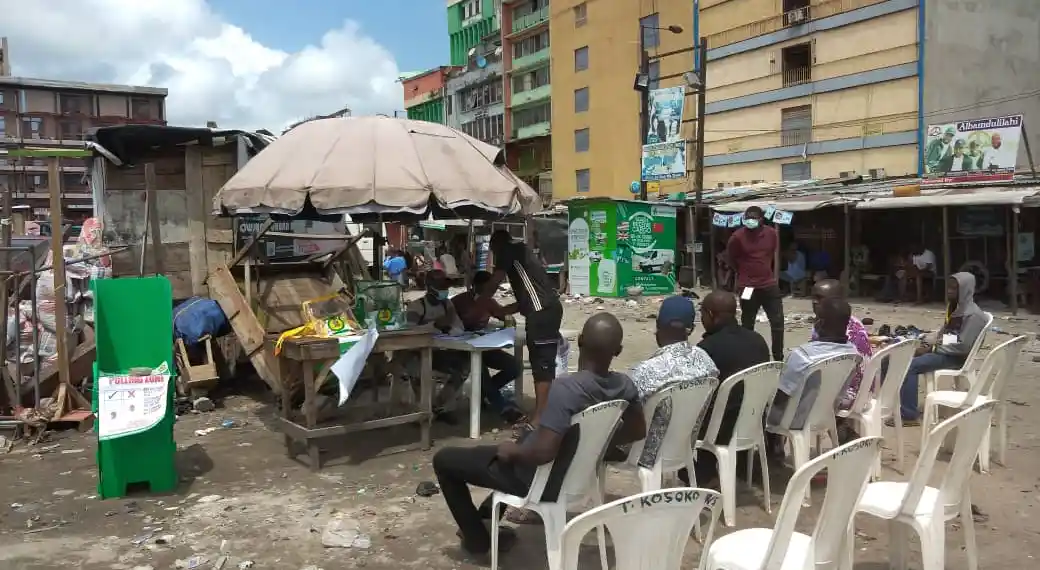- …charge average of N10m for chairmanship aspirants
…publicity to gulp additional N1bn
Leading political parties in Nigeria, especially the All Progressives Congress (APC) and Peoples Democratic Party (PDP), are set to earn at least N10 billion from aspirants who will be vying for different posts at the third tier of government in the forthcoming elections, The Nigerian Observer’s analysis shows.
The Nigerian Observer estimated that the two leading political parties in the country will generate the revenue from the sale of expression of interest forms to aspirants across the 475 local government areas where local council elections will be held between August 2024 and February 2025. These include local government areas with democratically elected officials but whose tenures will be ending this year.
Our estimates further showed that at least an additional N1 billion will be injected in all the affected local government areas in the forms of printing of posters, announcements in radios and other forms of publicity.
The rush to conduct local government elections by the affected state governments followed the landmark judgement delivered by the apex court in the country that no allocations should be given to local government areas without democratically elected officials.
The seven-man panel of the Supreme Court, led by Justice Emmanuel Agim, had ruled last week that the 774 local government council areas in the country should henceforth be the ones to manage their monthly allocations, insisting that state’s retention of the local government funds was unconstitutional.
While the implementation of the apex court decision has been delayed for about 90 days, a grace period for most states, Adamawa State in the North-East and Delta State in the South-South geopolitical zone conducted local government elections on July 13, 2024 to usher in democratically elected officials. These elected officials have since been sworn in.
The Nigerian Observer relied on the fees charged recently by the different political parties to arrive at N10 million as the average nomination fee that will be paid by a chairmanship aspirant in the forthcoming elections in the affected states.
For instance, in Ebonyi State, APC pegged the nomination fee for a chairmanship aspirant at N25 million while in Adamawa State, the PDP put its nomination fee at N10 million for a chairmanship aspirant. In Delta State, the nomination fee for a chairmanship aspirant was N200,000 while that of a councillor was N150,000.
Fearing the negative impact of the Supreme Court verdict, some states have announced dates for elections into their respective local government areas.
Bauchi and Kebbi State governments have fixed local council elections for August 2024. The two states lead others in compliance with the apex court verdict. Bauchi State is to conduct its council election on August 17 while Kebbi has fixed for August 31, 2024.
Local council elections will be held in Imo and Kwara States on September 21 of this year, according to the schedules released by the electoral commissions in those states.
Akwa Ibom, Enugu, Kaduna, Kogi, and Rivers States will hold their local council elections in October 2024. Local government elections will be held in both Enugu and Rivers States on October 5; Kaduna and Kogi States on October 19, and Akwa Ibom State on October 26.
Benue State has fixed November 16, 2024 as the local government election date in that state. Also, barring any unforeseen circumstances, local government elections will be held on February 15 and 22, 2025 in Katsina and Osun States, respectively.
Meanwhile, both the state and local government officials will have to come up with a campaign that will restore trust in local government administration in the country. A report by Yiaga Africa titled “State of Local Government Elections in Nigeria” published in March 2024 showed trust as the major missing critical element in local government administrations in Nigeria.
“The elections revealed a persisting capacity deficit with respect to human and financial resources and technical expertise required for successful election administration at the local level. It also revealed the absence of a robust legal framework for LGA elections that can sufficiently guarantee electoral integrity, enable political inclusion and regulate political party conduct in the elections,” Yiaga Africa said.
Using an Afrobarometer Survey, when asked to rate the level of trust Nigerians have in elected local government officials, 41.9 percent of the respondents said they do not have trust at all in elected local government officials. 36.6 percent said they have little trust in these officials, while 16.6 percent said they have somewhat trust in them. Only an insignificant figure, 6.4 percent, said they have a lot of trust in elected local government officials.
“The challenges the local government councils face create a gap in confidence and trust between citizens and local governments. Popular trust is an indicator of the legitimacy of a government or public institution,” YIaga Africa stated.
“Under these conditions, the local government cannot claim legitimacy. The seeming failure of the legitimacy test by the local governments in Nigeria raises questions about the democratic credentials of the LGAs and even their claim of being democratically elected despite the Constitutional provisions that guarantee democratically elected local governments,” it said.



